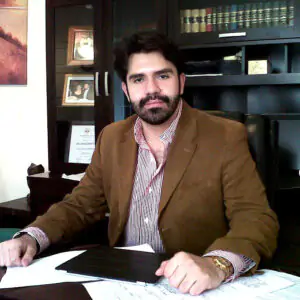At the end of 2023, the National Human Rights Commission issued recommendation 290/2023 to request comprehensive repair of the damage caused to a woman who lost a kidney after the placement of an infected catheter in a clinic of the Mexican Social Security Institute ( IMSS) in Tamaulipas. Next, we will tell you the case.
According to the CNDH document, in May 2022, the 39-year-old woman underwent a surgical procedure to remove a kidney stone at the Ciudad Madero Regional Hospital. After the intervention, hospital staff informed him that only part of the stone was removed and they would have to do a second surgery to remove it completely. However, after a few days she was discharged without a second intervention being performed.
After a few days, the woman began to feel constant pain and fever, so she returned to the hospital where she was informed that, apparently, an infected catheter was placed during the intervention. Given her discomfort, on July 13, 2022, she was referred to HGR-6 in Tamaulipas in a state of shock, where she remained in the emergency area for a week.
On July 25 of the same year, the woman underwent a uroscopy to observe the inside of her ureter and the results were surprising, since the doctors realized that the woman’s right kidney was removed, so she was requested the intervention of the CNDH for violating the victim’s human rights to health protection, life plan and access to health information.
Relatives of the victim went to the CNDH, where file 290/2023 was opened to document the evidence of the case, finding that the victim’s condition warranted the extraction of the kidney stone through open surgery. However, the procedure was not performed and the treating physician only placed a “JJ” catheter on the right side without resolving the underlying condition. This situation caused degenerative damage to the kidney and made its removal necessary.
Furthermore, after the intervention, when the victim requested care at the clinic, the response was inadequate since she was not evaluated by urology specialists even though her underlying condition had not been resolved.
After analyzing the evidence, the CNDH determined that the IMSS must repair the damage caused to the victim in a comprehensive manner, under the principles of restitution, compensation, rehabilitation, compensation, satisfaction, guarantees of non-repetition, identify, locate, detain, judge and punish those responsible for the damage.
If you find yourself in a situation of this nature, turning to lawyers specializing in negligence will guarantee you receive financial compensation, medical and psychological care, the provision of medications and the corresponding sanctions for negligent personnel. At LEX & CO we will gladly advise you by phone at 5568401076, or write to us at firma.lex.co@gmail.com and tell us about your case. Learn the Art of Winning with LEX & CO.

Carlos Figueroa Rodríguez, attorney at law at Lex & Co. He has more than 10 years of experience in specialized cases involving medical malpractice and insurance claims. He is a graduate of the Universidad Anáhuac and has a Master’s Degree in Constitutional Law and Amparo from the National Bar Association. He also has a Doctorate in Juridical Sciences from the UCI Mexico. Professional license 6577215.
Calle California N° 130-A (Casi esquina Inglaterra) Col. Parque San Andrés, CDMX C.P. 04040
copyright 2025 Privacy Notice